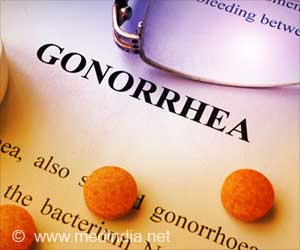
- Childhood trauma, or adverse childhood experiences (ACEs), increases the risk of chronic pain in adulthood
- Physical abuse during childhood heightens the likelihood of chronic pain and pain-related disability
- A cumulative impact is observed, emphasizing the need for interventions to break the cycle and improve long-term health outcomes
Embarking on a comprehensive exploration spanning 75 years and involving over 800,000 adults, a recent study published in the European Journal of Psychotraumatology delves into the lasting repercussions of adverse childhood experiences (ACEs) (1). These potentially traumatic events, occurring before the age of 18, have been revealed to significantly elevate the risk of chronic pain and pain-related disabilities in adulthood. With more than a billion children worldwide exposed to ACEs annually, the study underscores the urgent need for targeted interventions and support systems to break the cycle of adversity and enhance long-term health outcomes.
Advertisement
What are Adverse Childhood Experiences (ACEs)?
ACEs encompass a range of potentially traumatic events that impact children and teenagers either directly or indirectly. Direct forms include physical, sexual, or emotional abuse, as well as neglect. Indirect exposure involves environmental factors like domestic violence, substance abuse, or parental loss. The study, conducted by Dr. André Bussières from McGill University, Canada, and his team, emphasizes the breadth of ACEs’ reach and their potential to influence long-term health outcomes.
Advertisement
Childhood Trauma Amplifies the Threat of Chronic Pain in Adulthood
The research illuminates a disturbing reality—the cumulative impact of exposure to multiple ACEs exacerbates the risk of experiencing chronic pain and pain-related disability in adulthood. Children subjected to physical abuse face a particularly heightened risk. The findings sound a clarion call, highlighting the urgent necessity for interventions and support systems to mitigate the pervasive influence of childhood trauma on adult health.
Advertisement
Adverse Childhood Experiences, Chronic Pain, and Urgent Calls for Intervention
Chronic pain, affecting up to half of the UK population and being a leading cause of disability worldwide, is a significant public health concern. Conditions like low back pain, arthritis, headaches, and migraines can severely impede daily functioning. This study draws attention to the positive relationship between ACEs and chronic pain in adulthood, underscoring the pressing need for a more nuanced understanding of this connection.
Childhood Trauma and Adult Chronic Pain: Decoding the Impact of Early Trauma
To bridge existing knowledge gaps, the authors conducted a systematic review, encompassing 85 studies, with results from 57 studies being pooled for meta-analyses. The findings were revealing:
- Individuals exposed to direct ACEs, including physical, sexual, or emotional abuse, or neglect, were 45% more likely to report chronic pain in adulthood.
- Childhood physical abuse correlated with a higher likelihood of reporting both chronic pain and pain-related disability.
- The risk of reporting chronic pain increased with exposure to any direct ACE, either alone or combined with indirect ACEs.
- A dose-response relationship was observed, with the risk of chronic pain significantly escalating from exposure to one ACE to four or more ACEs.
Adverse Childhood Experiences and Chronic Pain: Urgent Calls for Intervention and a Path Forward
Professor Jan Hartvigsen from the University of Southern Denmark, the senior author of the study, emphasizes the urgency of addressing ACEs in light of their prevalence and profound health repercussions. The study concludes with a call for future research to delve into the biological mechanisms linking ACEs to health across the lifespan. This deeper understanding will empower healthcare professionals and policymakers to devise targeted strategies aimed at mitigating the enduring impact of early-life adversity on adult health.
In essence, this groundbreaking research not only sheds light on the alarming connection between childhood trauma and adult chronic pain but also serves as a clarion call for comprehensive interventions and support systems to safeguard the well-being of the millions of children grappling with ACEs worldwide.
References:
- Adverse childhood experience is associated with an increased risk of reporting chronic pain in adulthood: a stystematic review and meta-analysis.
André Bussières, Mark J. Hancock, Ask Elklit, Manuela L. Ferreira, Paulo H. Ferreira, Laura S. Stone, Timothy H. Wideman, Jill T. Boruff, Fadi Al Zoubi, Fauzia Chaudhry, Raymond Tolentino, Jan Hartvigsen. Adverse childhood experience is associated with an increased risk of reporting chronic pain in adulthood: a stystematic review and meta-analysis. European Journal of Psychotraumatology, 2023; 14 (2) DOI: 10.1080/20008066.2023.2284025
Source-Medindia



